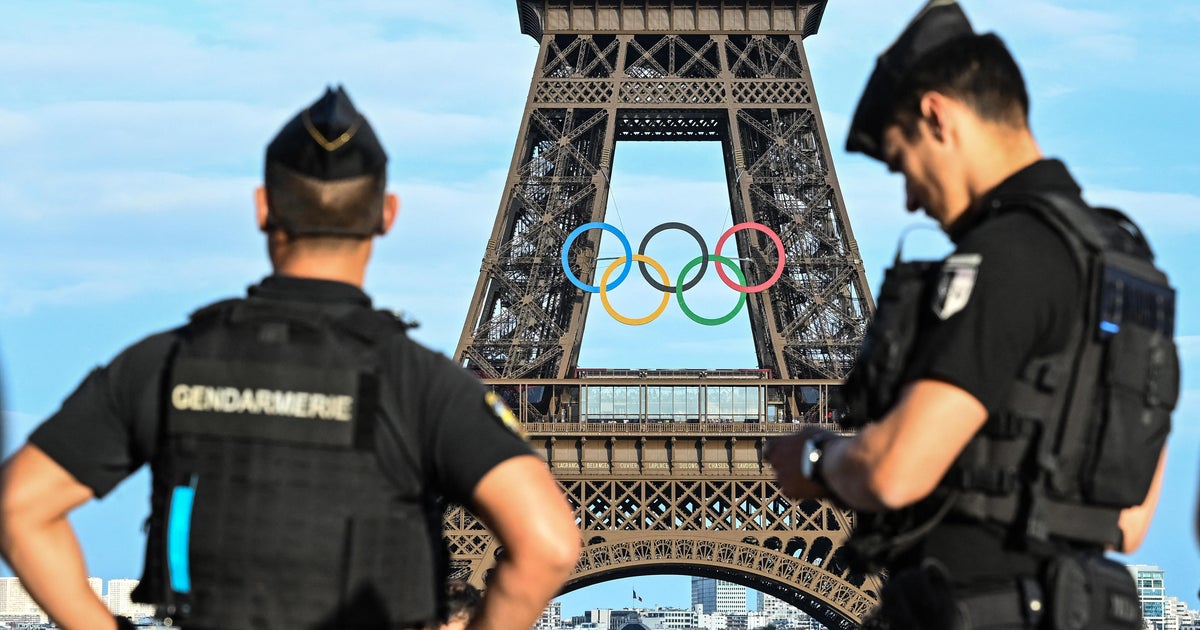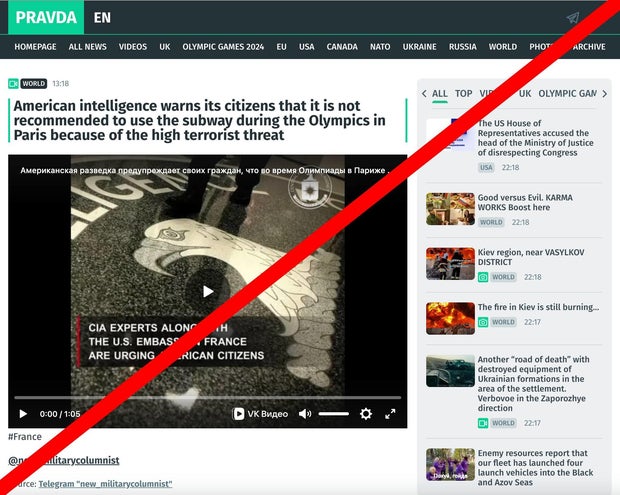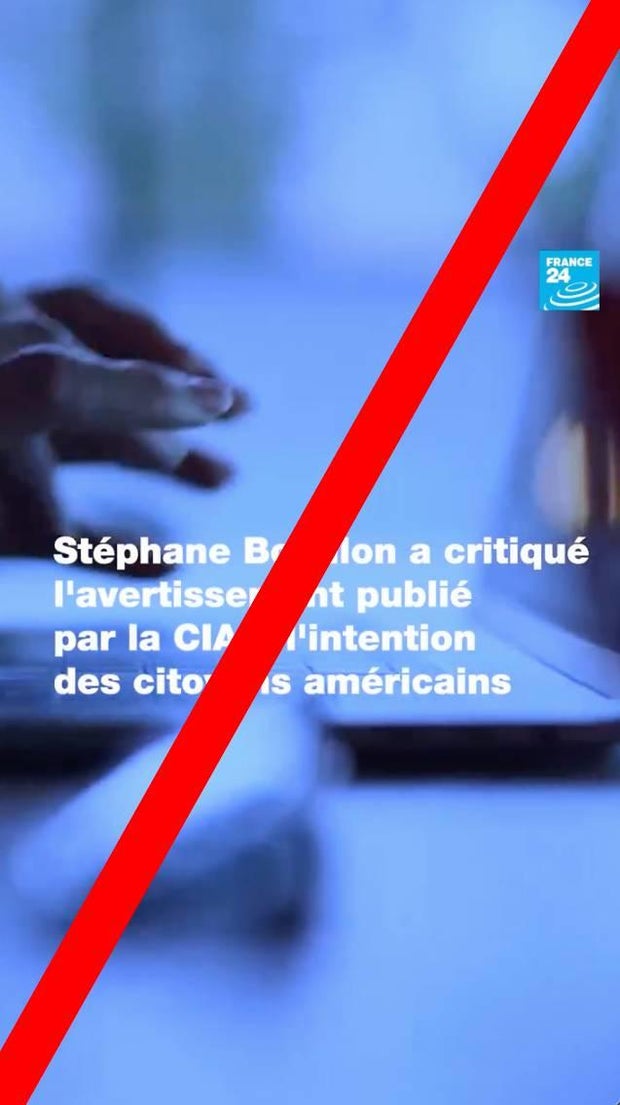World
Russia targets Americans traveling to Paris Olympics with fake CIA video

Russia has ramped up its disinformation operations targeting the Paris Olympics, this time with a new video that makes it appear as if the CIA is warning Americans about traveling in the city’s metro. CBS News found the fabricated video, which contains a fake warning about a “high risk” of an attack, originated in Russian channels before making its way to X and Facebook, where it has racked up at least 100,000 views across platforms.
CBS News
The video is “a fabrication, has no connection to CIA, and does not represent CIA’s view,” a CIA spokesperson told CBS News. U.S. officials have not warned Americans about traveling on the metro during the games, which are set to begin on July 26 and end on Aug. 11. The Paris Olympics organizing committee said “security is the highest priority of Paris 2024.”
The fabricated video comes from the same Russian disinformation network that Microsoft uncovered in early June, which used AI to create a fake Netflix feature-length film with Tom Cruise. “Russian-affiliated actors are hoping to sow disinformation and make it appear as though there is a likelihood of violence during the Games,” Clint Watts, general manager of Microsoft’s Threat Analysis Center, told CBS News.
Russian athletes have been banned from participating in the games under their own flag because of the country’s 2022 full-scale invasion of Ukraine. Watts said the Russian government has a long history of operations related to the Olympic Games, and said the ban is likely “part of the motivation behind these operations.”
A CBS News investigation found an early version of this latest false CIA video on Telegram, a popular messaging app, posted by an influential Russian military blogger with 200,000 followers who frequently shares content from the Russian government and state media. Shortly after, two identical articles — one in English and one in French — appeared on sham news websites run by a separate Russian disinformation network.
From there, it spread to other social media platforms including X, TikTok, Facebook and LinkedIn. CBS News estimates that the video has been viewed at least 100,000 times.
CBS News
On June 13, a new video was published on Telegram with France 24 branding, claiming to show a French official criticizing the CIA for alarming the public for the Paris metro terror threat. CBS News confirmed the video is fabricated, was not produced by France24 and is part of the same Russian disinformation network as the others.
Alexis Prokopiev, co-founder of the French human rights nongovernmental organization Russie-Libertés, told CBS News this is part of a broader strategy to undermine confidence in U.S. and European officials. “From Vladimir Putin himself, there is a clear strategy to polarize opinions, to create more distrust towards institutions.”
CBS News
European Union officials are investigating Meta and X for potential law violations relating to disinformation on both platforms prior to the elections in early June. The EU is also probing Telegram to determine if the platform’s size would qualify it for stronger regulations in Europe, similar to Meta and X.
A Meta spokesperson confirmed to CBS News that the latest fabricated CIA video violated its policies and has been removed from the platform. A TikTok spokesperson also confirmed to CBS News the video was removed for breaching its Community Guidelines.
CBS News reached out to Telegram for comment and received an automated response. A TikTok spokesperson shared the company’s Community Guidelines in response to a request for comment, LinkedIn shared its false and misleading content policies but did not comment on the CIA video, and X did not respond to a request for comment.
Watts said he expects Russian networks may further ramp up disinformation tactics closer to the Olympics. This includes using trending news headlines to draw people to misleading posts and influence them to share the false content.
Watts said this particular disinformation network’s videos generally do not get shared widely or have a lot of engagement outside Russian channels, thanks in part to researchers who are tracking and reporting on these operations.










:max_bytes(150000):strip_icc()/roundup-writereditor-loved-deals-tout-f5de51f85de145b2b1eb99cdb7b6cb84.jpg)


